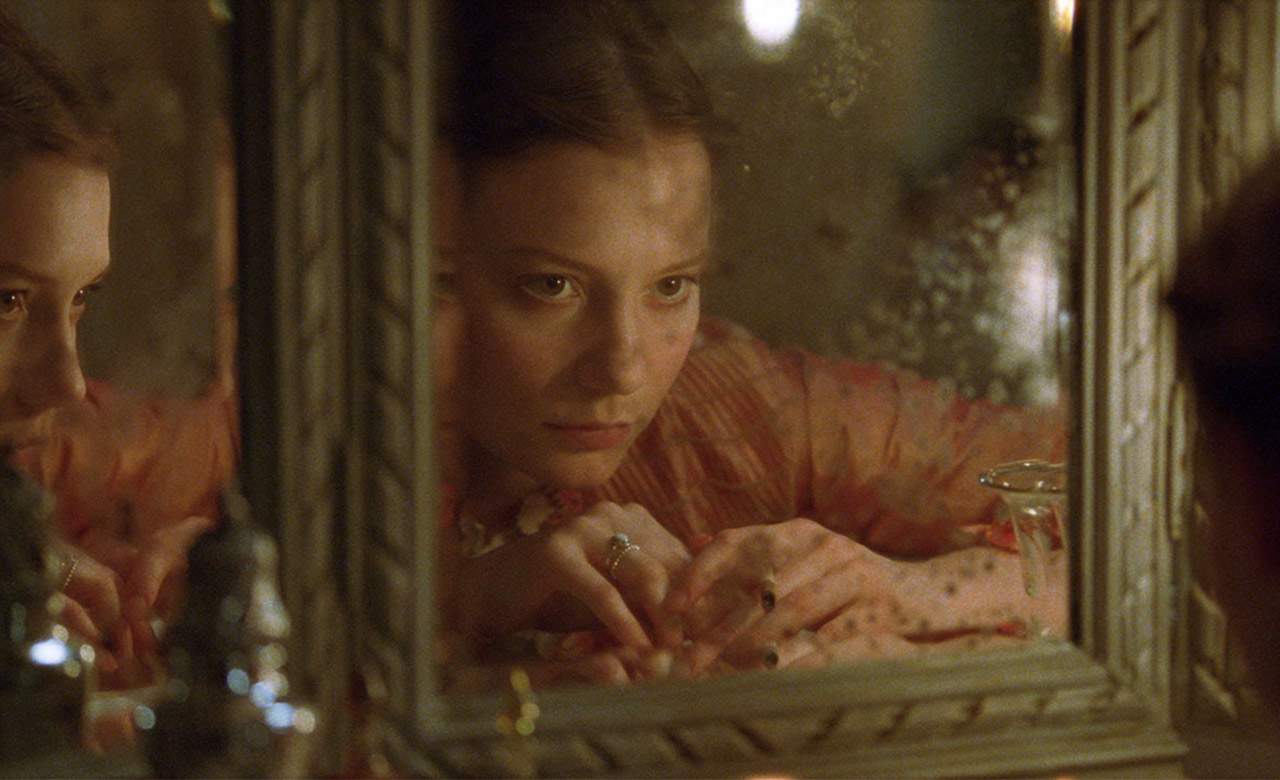Madame Bovary
The story of a strong, independent woman unfortunately born in the Victorian era.
Overview
Emma Bovary (Mia Wasikowska) is a strong, independent woman unfortunately born in the Victorian era. Like most lasses of her age, Emma was preened to become someone's wife from a young age. The story picks up around the point when said holy matrimony to a quiet, humble country doctor (Charles Bovary) occurs. Pretty soon after the much-hyped activity, Emma finds herself excruciatingly bored and um, unsatisfied. So she decides to start throwing money at fancy clothes and pretty furniture and throwing herself under another man. Further down the plot I won't go.
Originally published as a serial, the story of Madame Bovary's sad demise was penned by French writer Gustave Flaubert in 1856. It ended up getting attacked by the French public persecutors for obscenity; although he was later acquitted, and after having the charges dropped he turned the serial into a single volume in 1857 and it ended up becoming a bestseller and the model for modern realist narratives.
What makes Madame Bovary interesting is that it makes you wonder, what exactly happens when you take a novel that, when it was first published, was highly contentious and manifest it into a film more than 150 years later? Emma Bovary clearly begins as quite a restricted female character, but seemingly every act of rebellion just serves as self-indulgence and doesn't really do much for her in terms of freedom. Sure, she gets laid and gets pretty, exotic things, but they come with their own set of strings attached and more than anything everything she does to get free just ends up controlling her.
As it is quite centred around Emma Bovary's failed but luxurious quest for emancipation from the constraints of being a woman in that era, it's also a nice movie to take a pause and ask yourself, how much navel-gazing (or I guess, armpit hair-gazing) can feminism do? While Emma's taking her trip to liberty outside of the stifling restrictions imposed upon her as a women of those times, the movie quite cleverly intercuts with some pretty horrible scenes of poverty and sickness, which Emma just petulantly snubs at every turn. Maybe this is where the idea of intersectional feminism comes into play, or maybe it's a nice message about perhaps helping out the poor a little in your journey to self-actualisation; then again, maybe we're reading into this deeply and it's just a nice movie to watch if you really dig Victorian-style films a la Jane Austen and her cohort. Whatever you're looking for, Madame Bovary is quite the beautiful watch.





